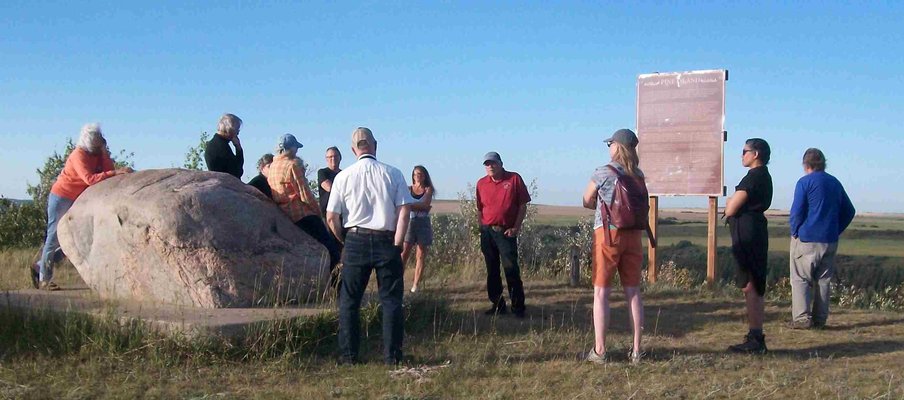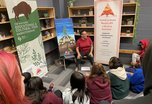Historic Trail Walks share stories from the land

Related Programs

Historic trail walks not only help people learn about the history of the land, they help participants learn about themselves.
Since 2015, the Saskatchewan History & Folklore Society (SHFS) has helped connect Saskatchewan people to the land via trail walks along some of the most important paths in the province’s history.
SHFS has been supporting heritage tours for many years, but in 2015, they began a series of Historic Trail Walks. The idea was conceived after Concordia professor Matthew Anderson, who studied pilgrimages, asked why Saskatchewan didn’t have a version of its own. That question inspired the first trek, from Wood Mountain to Fort Walsh.
Now Hugh Henry, president, SHFS, organizes these events for on average 30 participants every two years. Past walks have included Swift Current to North Battleford, Humboldt to Fort Carlton, among others. Participants can complete as much of the walk as they want.
Henry says part of the experience isn’t just in learning about the heritage of the places that one travels to, but also lies in connection. “It’s learning about the land, geography, local histories and so on. But a large part of it, I think, and it’s what brings you back is learning about yourself as well. You’re testing yourself physically and somewhat mentally.”
Simone Hengen, a SHFS participant, was part of the walk between Fort Battleford and Fort Pitt, this past August 2023.
“By walking, you are moving quite slowly and you actually get familiar with the landscape.” She adds that part of the appeal is the community that keeps coming back year after year.
From a heritage perspective, both Hengen and Henry say that Indigenous knowledge has been vital to the walks from the beginning. Henry is hopeful that future experiences can be done in conjunction with key historical anniversaries, such as working with the Indigenous community members to commemorate the signing of Treaty 4, which took place 160 years ago. Henry says that without these perspectives, there’s a danger that only the dominant settler narratives of homesteading would be retained.
Alongside planning for areas of importance along the walk, such as local museums, organizers also consider places to camp. Overnight stays are often in towns and municipal camp grounds along the route.
The Saskatchewan History and Folklore Society receives Annual General Funding from Sask Lotteries, in partnership with SaskCulture.




